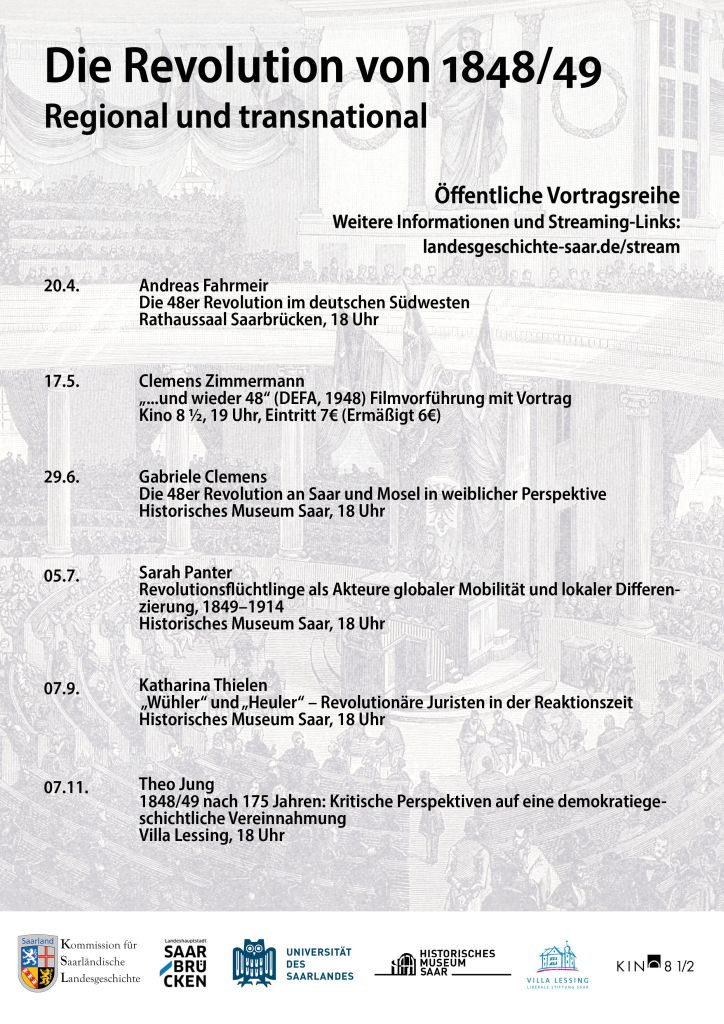In April, I will be speaking in Dresden, at the conference “Das Königreich Sachsen 1848/49 – Dynamiken und Ambivalenzen der Revolution” (April 24-26, 2024), organized by Prof. Dr. Susanne Schötz, Prof. Dr. Andreas Rutz and Werner Rellecke.
The program can be downloaded here.
All are welcome and attendance is free.
Conference abstract in German:
Sehr geehrte Damen und Herren,
vom 24. bis 26. April 2024 veranstalten die Professur für Wirtschafts- und Sozialgeschichte der TU Dresden, die Sächsische Landeszentrale für politische Bildung und das Institut für Sächsische Geschichte und Volkskunde eine internationale Tagung in Dresden, die sich den revolutionären Ereignissen von 1848/49 im Königreich Sachsen widmet. Niemals zuvor haben sich hier so viele Menschen für Freiheit, Recht und Einheit begeistert wie während der Revolution von 1848/49. Männer und Frauen verliehen ihrem Wunsch nach bürgerlichen Rechten, größerer sozialer Gerechtigkeit und einem vom Volk gewählten sächsischen wie nationalen Parlament auf vielfältige Weise Ausdruck. Sachsen war in dieser Zeit der am dichtesten besiedelte und industriekapitalistisch am weitesten entwickelte deutsche Mittelstaat. Hier hatte sich eine starke Demokratiebewegung entfaltet, zahlreiche Arbeitervereine entstanden und Frauenrechte wurden zum Thema. Doch wie anderswo behielten auch in Sachsen die konservativen Kräfte die Oberhand. Die Tagung spürt den Verflechtungen, Dynamiken und Ambivalenzen des Geschehens aus unterschiedlichen Perspektiven nach. Sie interessiert sich für revolutionäre Karrieren und staatliches Handeln ebenso wie für transnationale und transatlantische Aspekte sowie Formen des Erinnerns und der Revolutionsbewältigung.
Die Tagung findet in Präsenz in der Sächsischen Landeszentrale für politische Bildung, Schützenhofstraße 36, 01129 Dresden statt. Das vollständige Tagungsprogramm und den Link zur Anmeldung finden Sie hier: www.isgv.de/tagung1848
Die Anmeldung ist ab jetzt freigeschaltet und noch bis zum 16. April 2024 möglich.
Wir freuen uns auf Ihren Besuch!
Im Namen des Tagungsteams
Prof. Dr. Susanne Schötz






